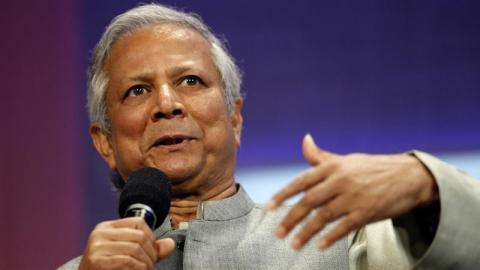
The cases filed against him and other senior managers in a Dhaka court relate to claims from Grameen Telecom employees for a share of profits, their lawyer Jafrul Hasan Sharif said.

Bangladeshi Nobel laureate, Muhammad Yunus, is facing more than 100 lawsuits from disgruntled employees at the telecoms unit of his poverty-busting microfinance Grameen Bank, lawyers said Thursday.
The cases filed against him and other senior managers in a Dhaka court relate to claims from Grameen Telecom employees for a share of profits, their lawyer Jafrul Hasan Sharif said.
Yunus has faced mounting legal problems in recent years.
In 2011 he was sacked as head of Grameen Bank in a move his supporters said was orchestrated by Prime Minister Sheikh Hasina, according to AFP.
“According to Bangladesh’s Worker’s Profit Participation law, Yunus’s Grameen Telecom was bound to share five per cent of the company’s profit with the workers,” lawyer Hasan told AFP.
“But for the last 10 years, the GT didn’t do so.”
Grameen Telecom operates a service called “Village Phone” dedicated to getting cellphones to the rural poor in the South Asian nation of 165 million people.
The company also owns a 34.2-per cent stake in GrameenPhone, Bangladesh’s largest mobile phone operator with some 75 million subscribers.
Yunus, 79, who founded Grameen Bank in the 1980s and was awarded the Nobel Peace Prize in 2006, could not be reached on Thursday.
A spokesperson declined to comment.
Last month the economist was granted bail by a labour court after an arrest warrant was issued when he failed to appear at a hearing in a separate case.
He has been at odds with premier Hasina since a brief and unsuccessful foray into Bangladesh’s fiery, high-risk political scene in 2007.
Hasina has accused him of “sucking blood” from the poor amid allegations his bank charges interest rates of around 20 per cent.
In 2013, he was the subject of a state-backed hate campaign that painted him as un-Islamic and a spreader of homosexuality, which is illegal in Bangladesh.